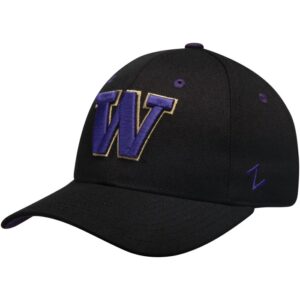In the competitive realm of higher education, the university letter of recommendation holds immense power. It serves as a beacon, illuminating the path to academic excellence and shaping the destiny of aspiring students. Embark on a journey to unravel the secrets of crafting an exceptional letter that will propel your application to new heights.
Throughout this comprehensive guide, we’ll explore the essential elements of a compelling letter of recommendation, dissect the appropriate writing style and tone, and provide invaluable tips for approaching potential recommenders. Let’s dive into the art of crafting a letter that will leave a lasting impression on admission committees.
Introduction to University Letter of Recommendation
A university letter of recommendation is a document that is written by a person who has known you well, such as a teacher, professor, or employer. The purpose of a letter of recommendation is to provide the admissions committee with information about your character, academic abilities, and work ethic. A strong letter of recommendation can help you stand out from other applicants and increase your chances of being admitted to your desired university.
There are different types of letters of recommendation. Some letters are general, while others are specific to a particular program or university. When you are requesting a letter of recommendation, it is important to provide the writer with specific instructions about what you would like them to include in the letter.
Types of Letters of Recommendation
There are two main types of letters of recommendation:
- General letters of recommendation: These letters are not specific to a particular program or university. They are typically used for students who are applying to multiple schools or programs.
- Specific letters of recommendation: These letters are written for a specific program or university. They typically include information about your qualifications for the program and your reasons for wanting to attend the university.
Components of a Strong Letter of Recommendation
An impactful letter of recommendation effectively showcases an applicant’s strengths and qualifications. Here are some essential elements to include:
Highlight Applicant’s Attributes: Describe the applicant’s key skills, abilities, and character traits that make them a suitable candidate. Provide specific examples to support your claims.
Specific and Detailed Examples
Specific and detailed examples add credibility and depth to your letter. When providing examples, consider the following:
- Describe Context: Clearly Artikel the situation or task where the applicant demonstrated their abilities.
- Provide Evidence: Include specific actions, results, or outcomes that showcase their capabilities.
- Quantify Results: Whenever possible, use numbers or data to quantify the applicant’s achievements.
Writing Style and Tone
The letter of recommendation should be written in a professional and formal style, with clear and concise language. Avoid using overly technical or jargon-filled language, as this may make the letter difficult to understand for the reader. Instead, use straightforward and descriptive language that effectively conveys your thoughts and opinions.
The tone of the letter should be positive and supportive, but not overly biased. You should be confident in your assessment of the applicant’s abilities and potential, but you should also be objective and avoid making exaggerated claims. Remember that the letter of recommendation is an important part of the applicant’s application, and it should be written with care and attention to detail.
Effective Language and Phrasing
When writing a letter of recommendation, it is important to use effective language and phrasing. This means using strong verbs and adjectives, and avoiding vague or general language. For example, instead of saying “The applicant is a good student,” you could say “The applicant is an exceptional student who consistently earns top grades in his/her classes.” Here are some examples of effective language and phrasing that you can use in your letter of recommendation:
- Strong verbs: achieved, accomplished, demonstrated, exhibited, excelled, mastered, succeeded
- Strong adjectives: ambitious, capable, competent, confident, creative, diligent, enthusiastic, intelligent, motivated, passionate, resourceful, responsible, skilled, talented
- Specific examples: The applicant was responsible for leading a team project that resulted in a successful product launch. The applicant volunteered his/her time to tutor underprivileged students in math and science.
Conveying Confidence
When writing a letter of recommendation, it is important to convey your confidence in the applicant without being overly biased. You should be honest and objective in your assessment of the applicant’s abilities and potential, but you should also be enthusiastic and supportive. Here are some tips for conveying confidence in your letter of recommendation:
- Use strong verbs and adjectives to describe the applicant’s abilities and accomplishments.
- Provide specific examples to support your claims.
- Be enthusiastic and supportive in your tone.
- Avoid making exaggerated or unrealistic claims.
Formatting and Structure
The formatting and structure of your letter of recommendation play a crucial role in creating a professional and impactful document. Follow these guidelines to ensure your letter stands out:
Professional Font and Layout
Choose a professional font such as Times New Roman, Arial, or Calibri. Use a font size between 11 and 12 points. Maintain consistent margins and line spacing throughout the letter.
Highlighting Key Information
Use bullet points or tables to highlight key information and achievements of the candidate. This makes it easier for the reader to skim the letter and identify the most relevant aspects.
Tips for Requesting a Letter of Recommendation
Approaching potential recommenders for a letter of recommendation requires tact and professionalism. Follow these tips to ensure a positive experience for both parties:
When selecting recommenders, consider individuals who can provide a comprehensive and insightful evaluation of your abilities and character. Professors, supervisors, or mentors who have witnessed your work ethic and achievements firsthand are ideal choices.
How to Approach Potential Recommenders, University letter of recommendation
- Request in person or via email, expressing your gratitude for their consideration.
- Clearly state the purpose of the letter and the specific program or opportunity you are applying for.
- Provide a brief summary of your qualifications and why you believe they would be a suitable recommender.
Provide Clear Instructions and Expectations
- Explain the specific requirements of the letter, including any guidelines or deadlines.
- Share your resume, transcripts, or other relevant materials to provide context.
- Discuss your strengths and areas where you would like them to focus.
Follow Up and Express Gratitude
- Check in periodically to inquire about the progress of the letter.
- Express your appreciation for their time and effort, regardless of the outcome.
- Send a thank-you note or gift as a token of gratitude.
Final Thoughts: University Letter Of Recommendation
Remember, a university letter of recommendation is not merely a formality; it’s an opportunity to showcase your exceptional qualities and aspirations. By following the guidelines Artikeld in this guide, you can create a letter that will not only meet the requirements but also serve as a testament to your potential and determination. May your letter of recommendation open doors to boundless possibilities and propel you towards your academic dreams.
Common Queries
What is the purpose of a university letter of recommendation?
A university letter of recommendation provides an assessment of your academic abilities, character, and potential for success in higher education.
Who should I ask to write my letter of recommendation?
Choose individuals who have witnessed your academic journey firsthand, such as teachers, professors, or mentors who can attest to your skills and qualities.
How many letters of recommendation do I need?
The number of letters required varies depending on the university and program. Check the specific requirements for your target institutions.



